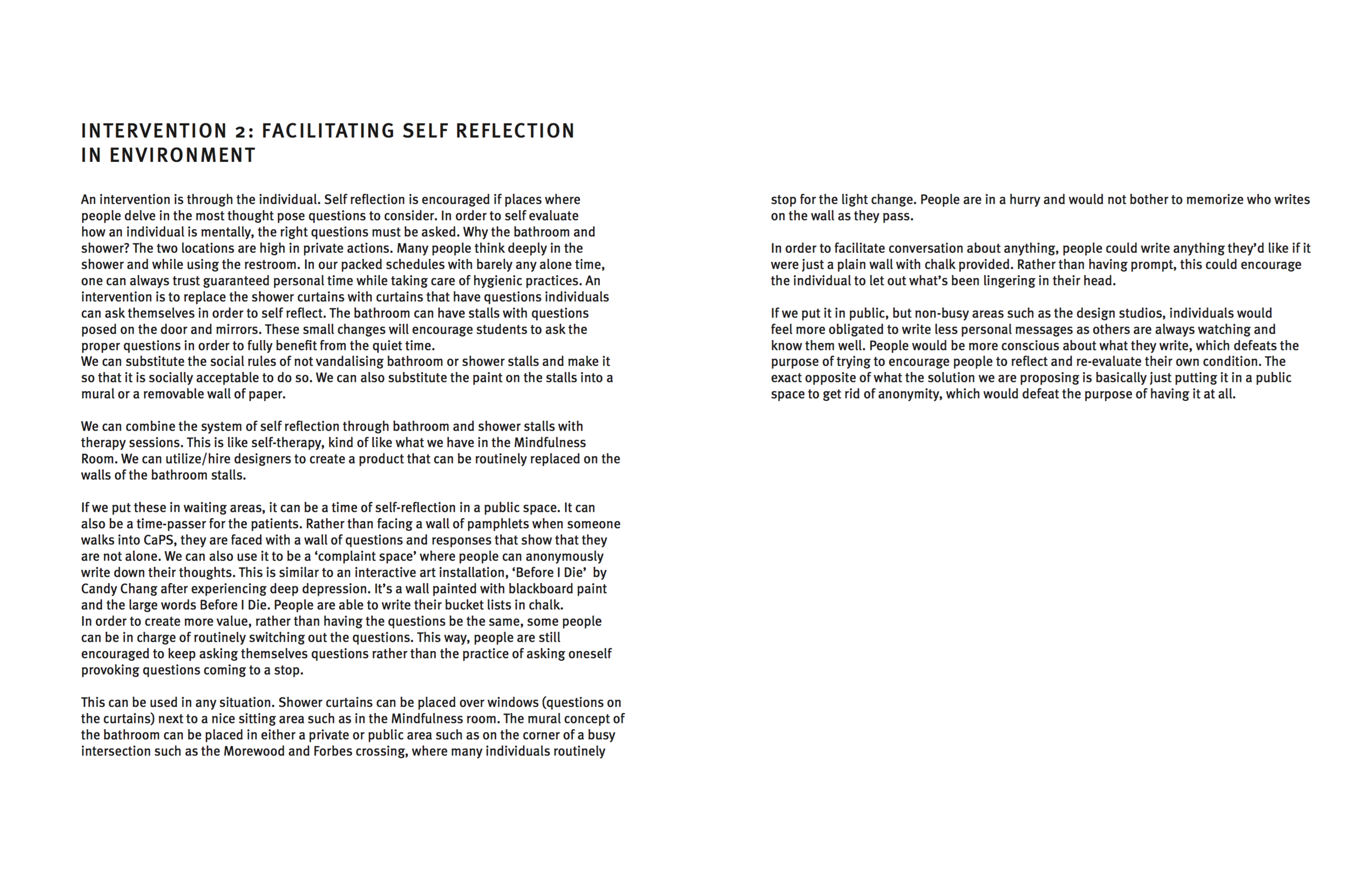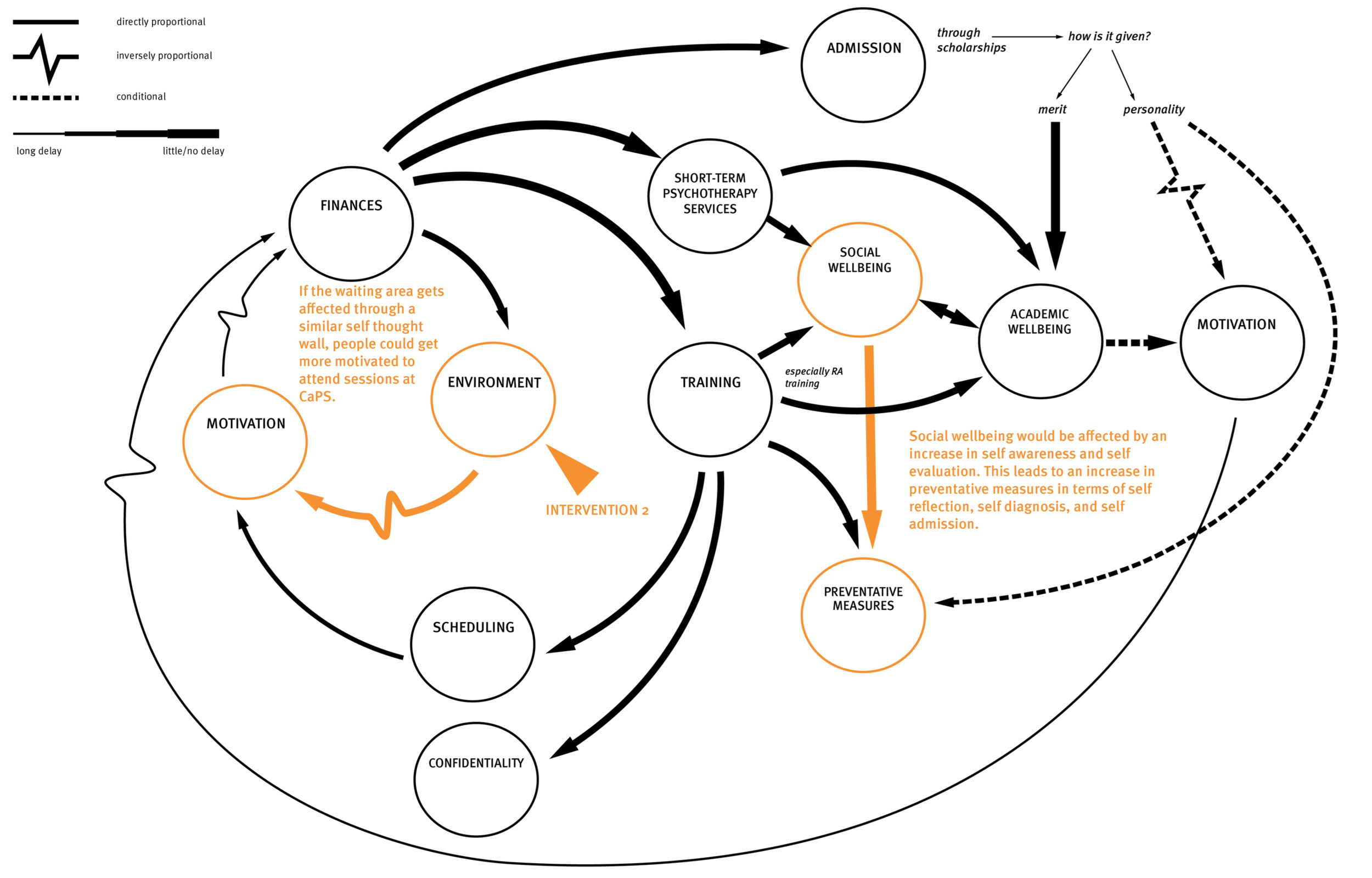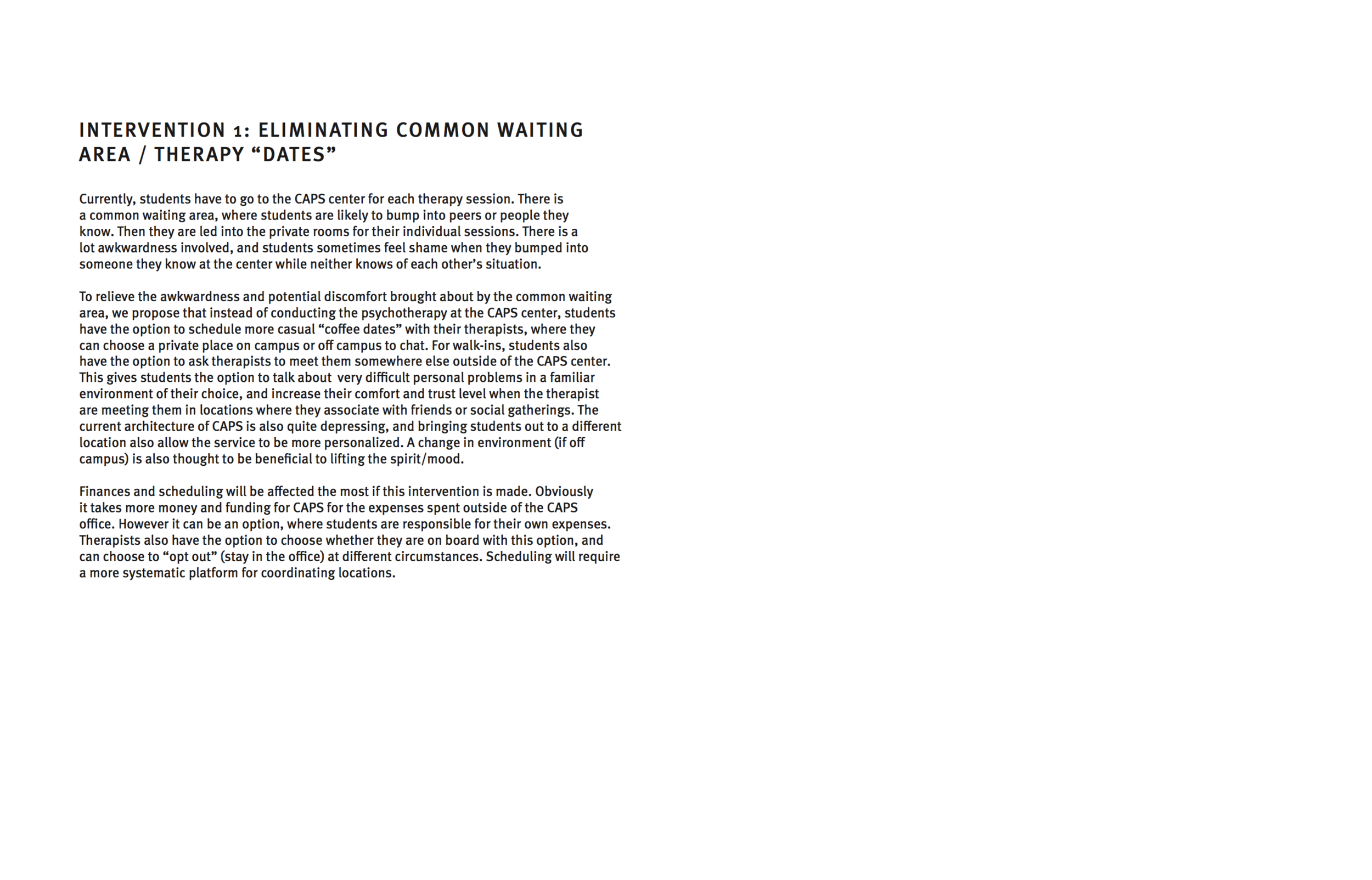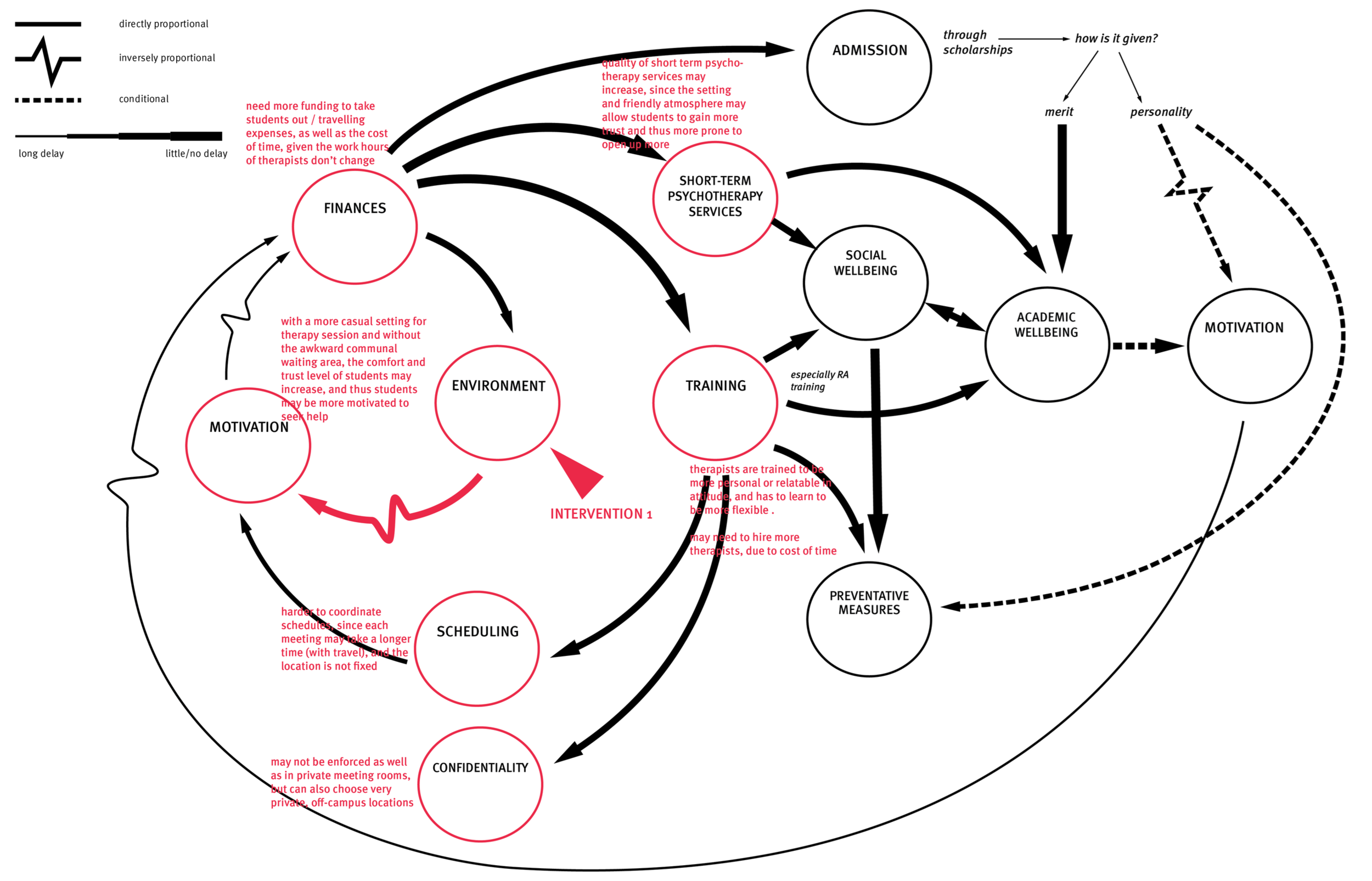SOFT Systems: Caps
Systems | Research | Collaboration
HOW MIGHT WE explore a wicked problem found on campus?
Carnegie Mellon University has a myriad of intertwined systems. The Counseling and Psychological Services (CaPS) at CMU is known to be an unapproachable program due to the taboo nature of mental health and mental wellness.
We researched the back workings of CaPS and explored the system behind the service. We proposed creative solutions to assist with the awareness of mental health.
Design Brief
Conduct research methods on a wicked problem on campus.
Team
Susie Lee, Soonho Kwon, Tiffany Lai, Alex Tsai and Julia Wong
Role & Contribution
I worked on user research, mapping, ideation, and documentation.
Deliverables
Research Documentation, Low-Fidelity Ideation
Process
Mental well-being walks hand in hand with the stress culture that formulates on a college campus. We decided to explore the psychological services available at Carnegie Mellon and examine the system behind the Services as well as the emotional and mental health of students. At the surface, the most noticeable issue deals with the difficulty of scheduling an appointment at CaPS or the stress that students place on themselves. The system of systems behind CaPS helped us to discover the systems behind the university that might feed into a student culture of stress and poor emotional/ mental health.
We began by dissecting the university into smaller systems. These systems dealt with the stress culture that formulates on a college campus. Each system was divided into smaller systems and these were linked to other lower level systems. All of these combined lower level systems created the more complicated system of mental health at CMU.
We explored how all of these systems were cyclical and created root definitions for each. They were all part of a multi-faceted feedback loop that, when turned negative, could lead a dangerous path for a student.
A lot of the systems involved, from scheduling to short-term therapy to referral involves a
lot of supporting technical systems such as finances and security. Even with just scheduling appointments, pre-appointment assessments and legal precautions have to be considered. There are external systems such as how one student influences another, work-study lifestyle, and alumni donations that interact with the systems within CaPS. Our soft systems mapping also reveals that the root of why the service exists and is needed, which is distressed students’ mental health, involves larger systems that determine what types of students the university admit, and the education and family upbringing that cultivate students’ mental health both prior and during their college years. CaPS is only a part of a larger system of what determines the mental and emotional wellbeing of students. While the overall system is large and complex, it also presents many opportunities and points of interaction that may be redesigned to help student wellness.
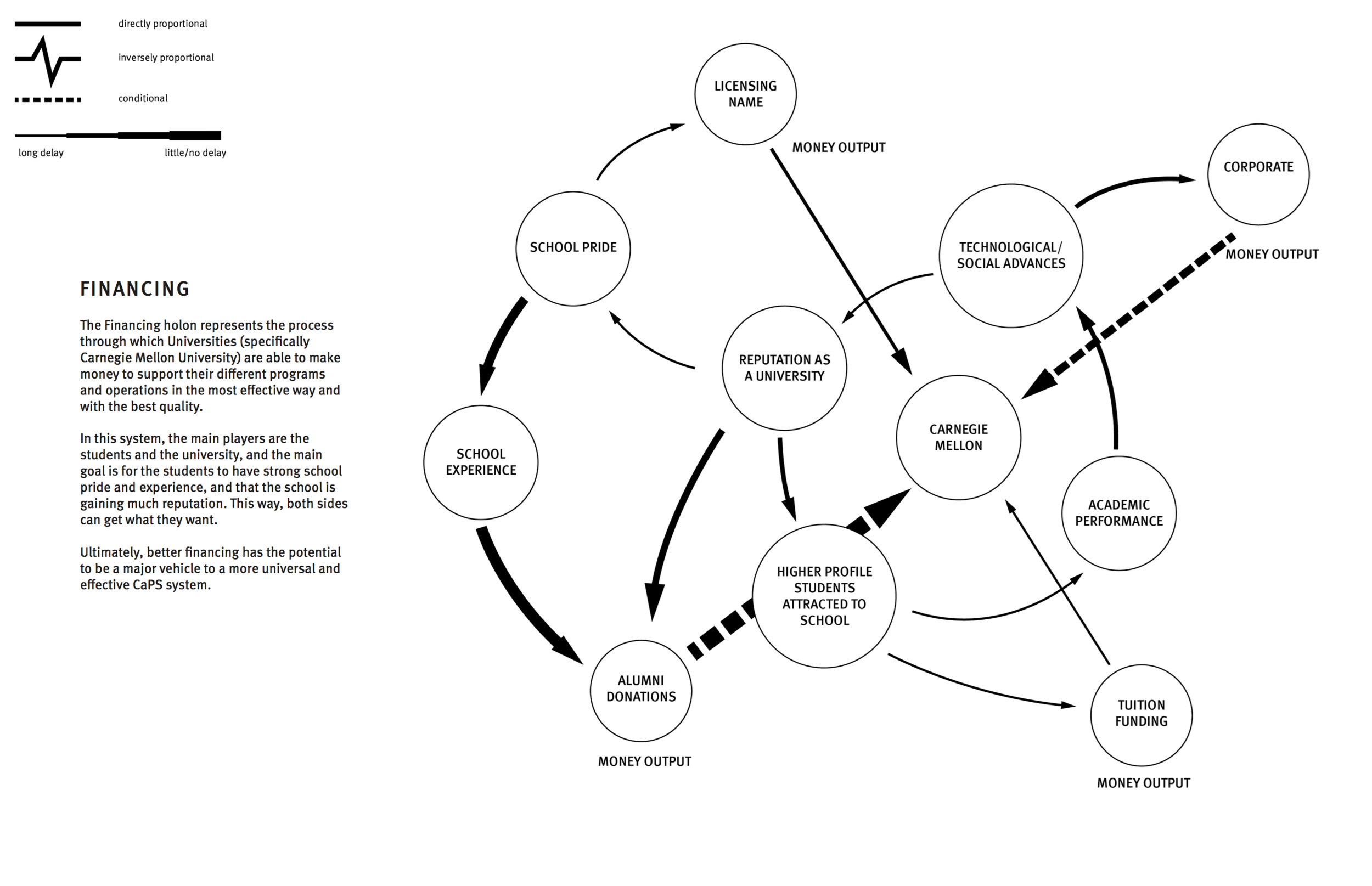
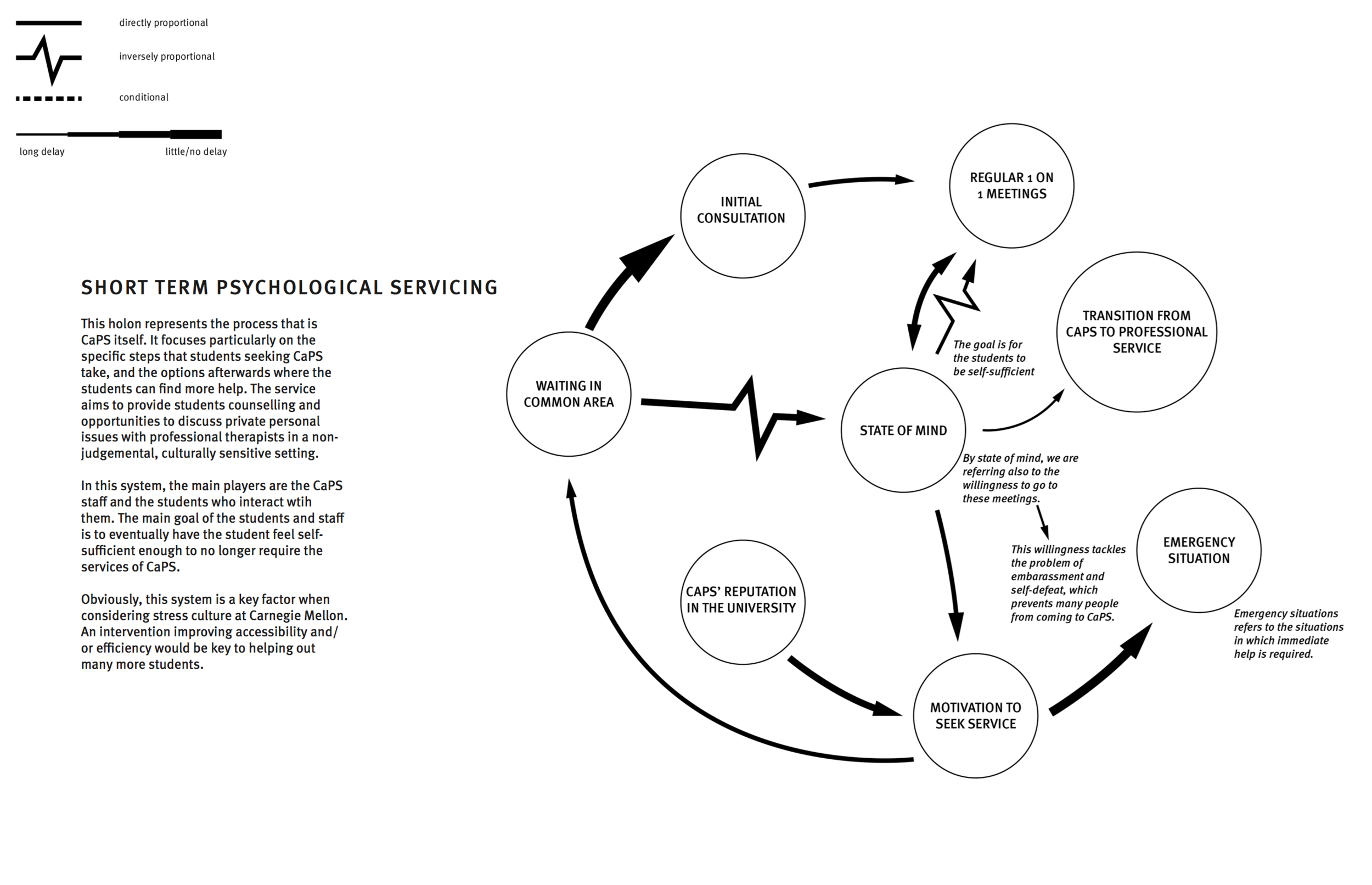
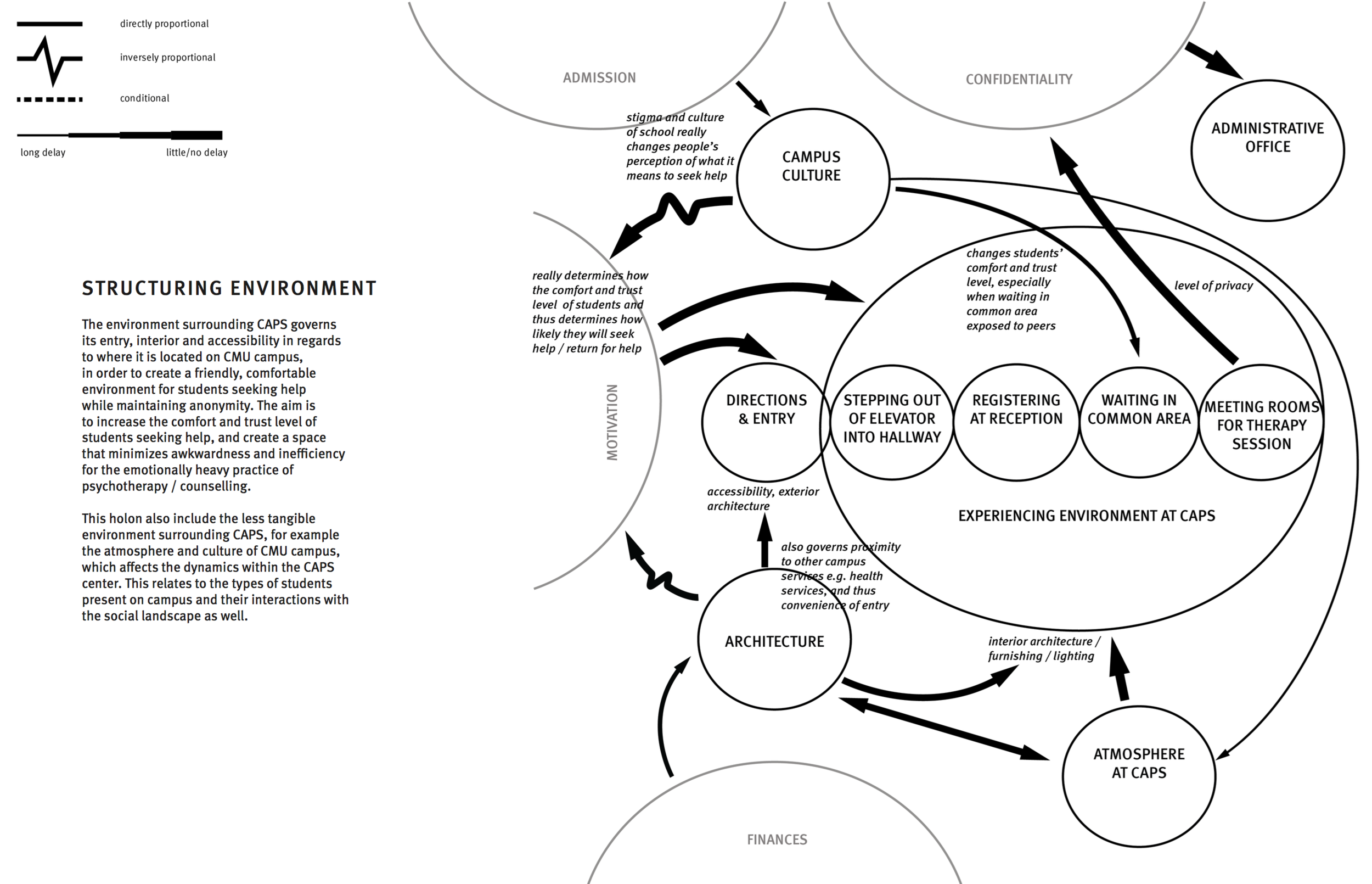
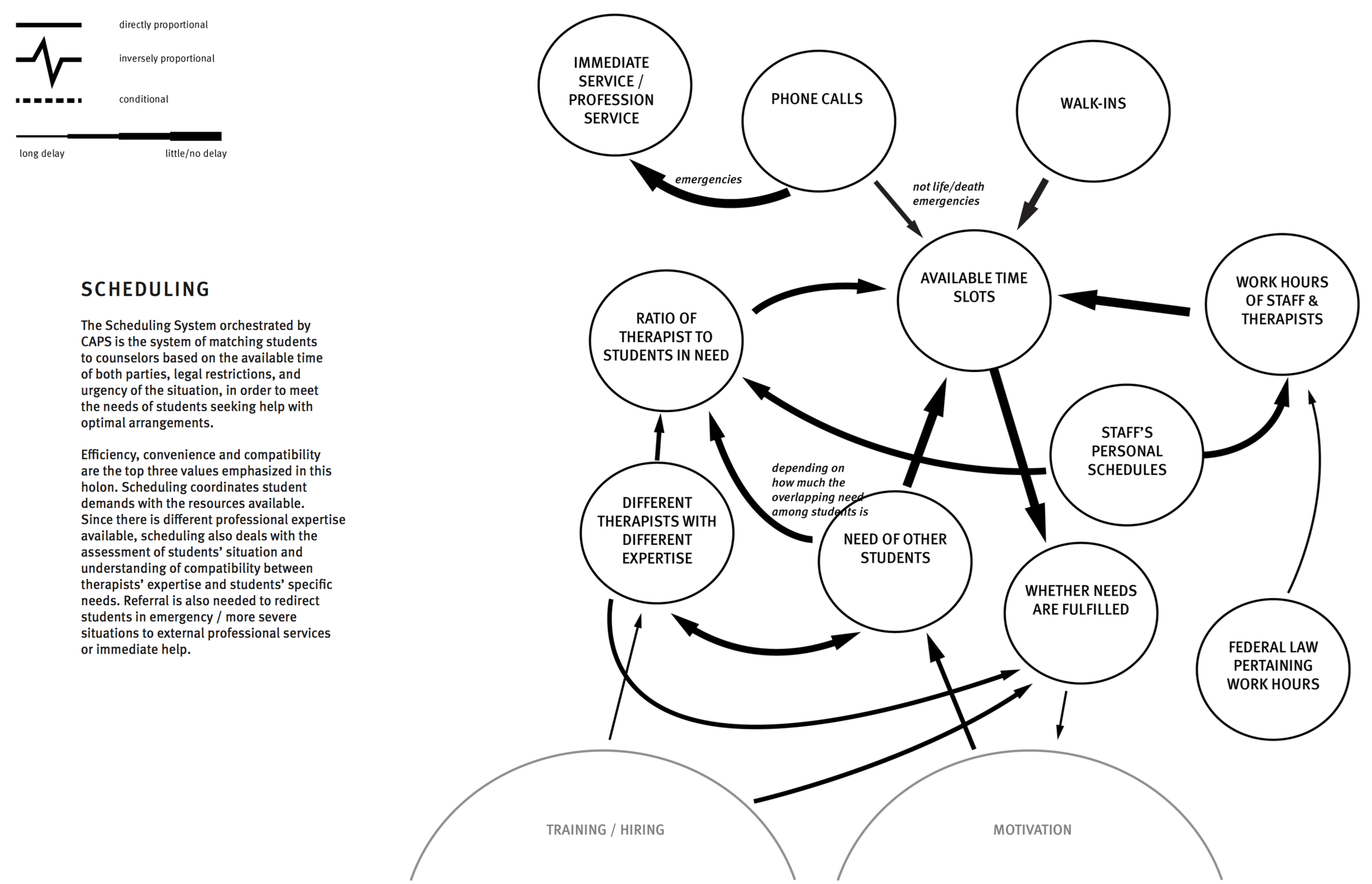


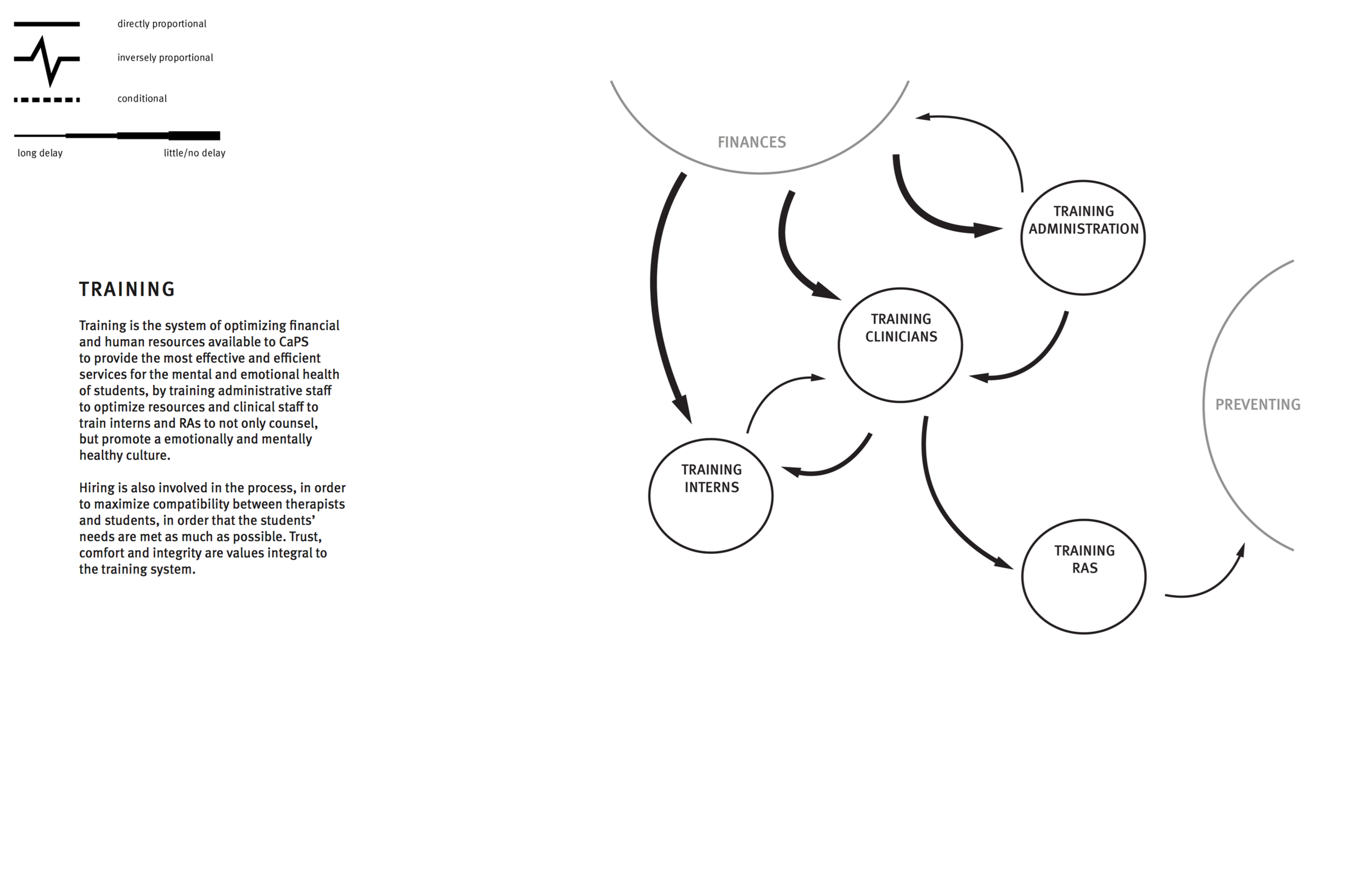

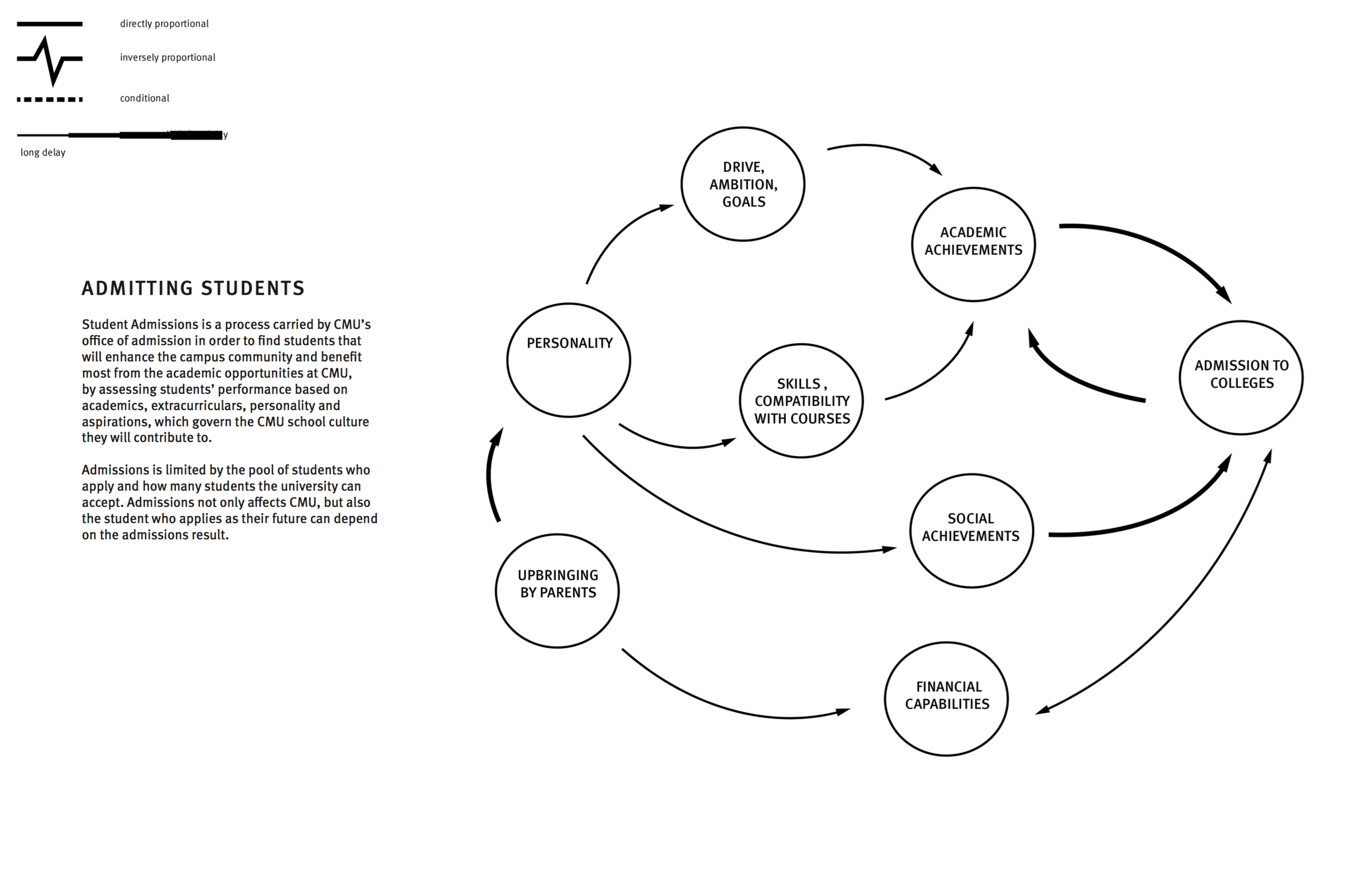
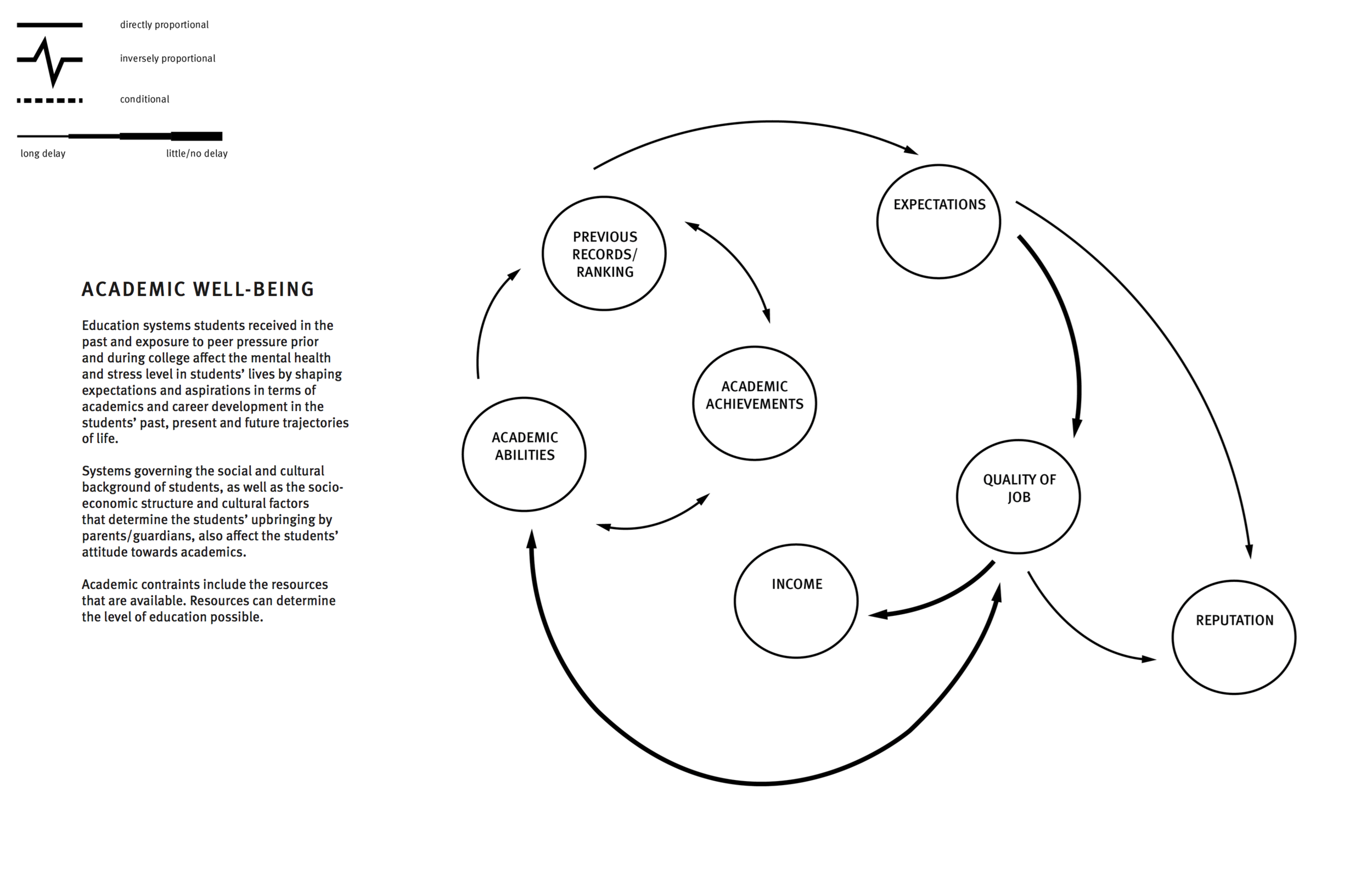

With a problem like stress culture continuously burning on the stove top, why are the problems being tolerated? My team and I came up with four reason: the problem is manifested too late, it is too complex to take initiative, multiple parties are involved with possible legal complications, and emotional capacity is maxed out. When students realize they need help, their mental health is already stressed and the urgency to receive help is greater than the annoyance at the flawed systems. The problem is also very deep rooted and interconnected (especially in the technical systems, less so the preventative measures) that no organization or authority is willing to take initiative to spur changes. Lack of coordination among different involved parties and differences in vision and approach to problems and the stakeholders involved (students in distress, concerned friends and family, clinicians counseling multiple students) are all heavily burdened emotionally, so they are too emotionally occupied to pay attention to systemic flaws.
We used the SCAMPER technique in order to develop more creative and innovative interventions.
S- substitute
C- combine
A- adapt
M- modify
P- put to another use
E- eliminate or elaborate
R- reverse
We brainstormed a list of 10+ ideas, and chose two to elaborate on: therapy "dates" and the encouragement/ facilitation of self reflection in new environments.
